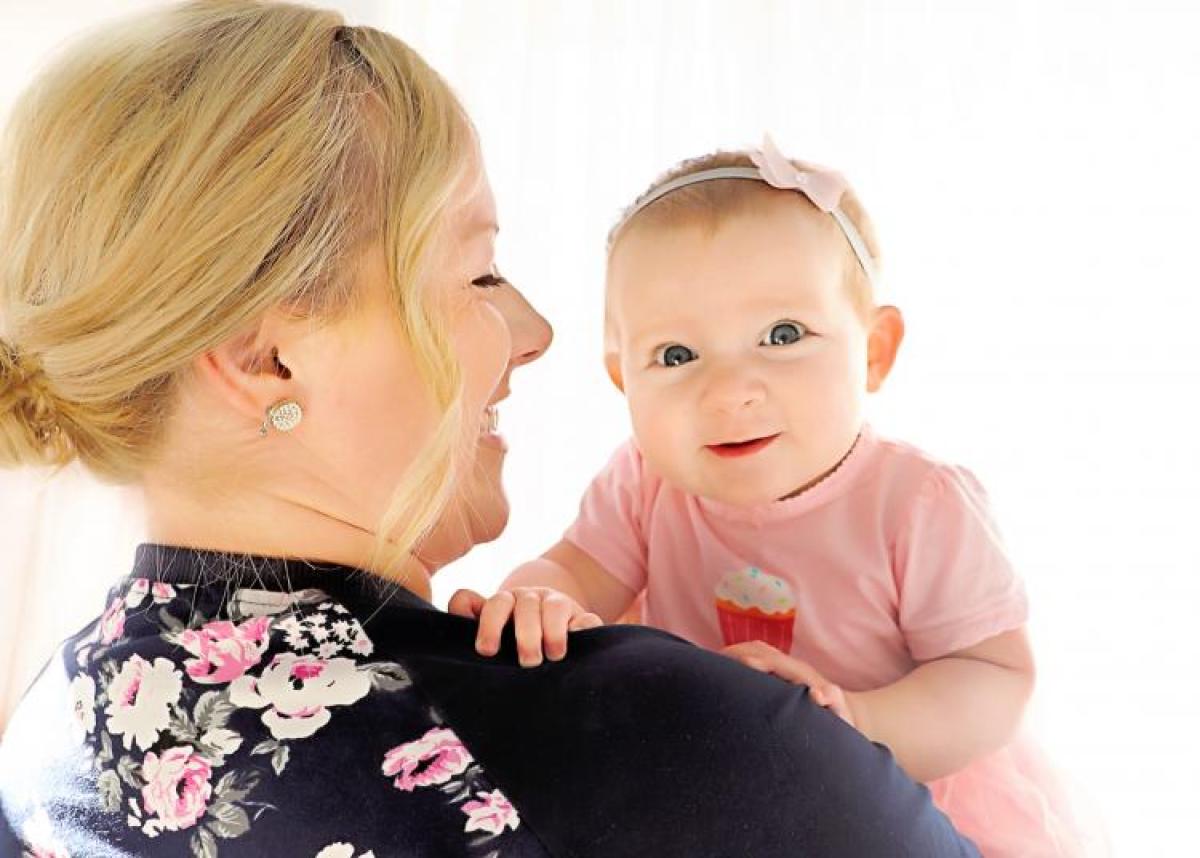Early Pregnancy Assessment Clinic provides urgent, comprehensive answers

Nine-month-old Elise is the youngest of three kids in the Buchholz family. She’s also the family’s rainbow baby, a term given to a child who follows a pregnancy loss or stillbirth.
“She is perfect,” says mom Lindsie Buchholz, who admits she may be a little biased.
Elise was born just about a year after Buchholz suffered a miscarriage.
“Even having a beautiful, healthy baby now, I still think about my miscarriage and will likely forever grieve that loss.”
Buchholz experienced both the best possible news and the worst possible news at the Olson Center for Women’s Health. That’s where she found the Early Pregnancy Assessment Clinic (EPAC). The first time she went to EPAC, it was to confirm she had experienced a miscarriage. She went back six months later to confirm a healthy pregnancy with Elise.
If you need to refer yourself, a friend or a patient to the Olson Center for Women’s Health Early Pregnancy Assessment Clinic, learn more here or call 402.559.4500.
“I was elated to say the least, when I had my follow-up ultrasound and they saw the expected progression of my baby,” Buchholz remembers. “The ultrasound tech even hugged me and congratulated me as she remembered the heartbreak I went through with my miscarriage.”
One of the goals of EPAC is to offer prompt evaluation of a pregnancy, especially for women who have experienced loss before.
Patients can call the EPAC in their first trimester (fewer than 13 weeks) if they are experiencing pain, bleeding or have questions about the viability of their pregnancy. EPAC provides blood tests, ultrasounds and exams in addition to counseling about why miscarriages happen and next steps if miscarriage has been found. Often patients require early monitoring due to pain, bleeding, or a past pregnancy loss but are ultimately found to have a normally developing pregnancy. Once they complete their close initial follow-up, they return to their obstetric care provider for the remainder of their pregnancy.
EPAC also provides the necessary medications and procedures for completing miscarriage within the clinic, with a quick resolution and no additional visit to an operating room required. Our team offers resources and connections to support groups for pregnancy loss as well.
_0_0.jpg)
“Unfortunately, miscarriage is still an experience that is shrouded in silence and a bit of shame in our society,” says Ana Lopez Shala, who found EPAC after a confusing two days of looking for answers about her own pregnancy. She called for an appointment and was able to be seen the very next day.
“The quick turnaround was such a psychological necessity for us during that time; we were living in a state of suspended reality and desperate for counsel that would help us determine how to move forward.”
The clinic quickly confirmed Lopez Shalla had experienced a miscarriage.
-
With Elise getting more active, Buchholz describes being a mother of three as exhausting and wonderful, all at the same time. Watching her daughter grow, Buchholz still thinks of that first trip to the EPAC.
“It was a very difficult time in my life but I have been able to move forward and accept what happened, which would not have been possible without the care I received from the Olson Center and the EPAC.”
Now expecting her own rainbow baby in July, Lopez Shala appreciates the care she received.
“We were so fortunate to have such a high-quality, accessible resource in our own backyard.”




